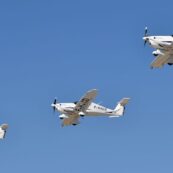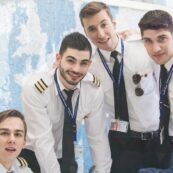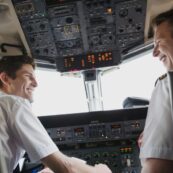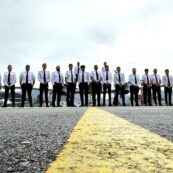Why Airlines Are Hiring Soft Skills—Not Just Flight Hours
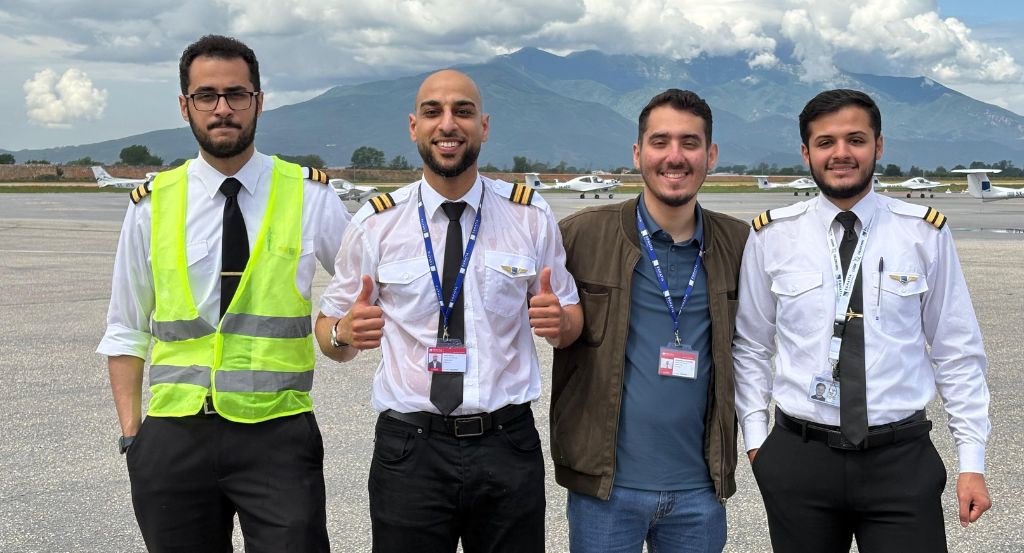
In an era of cockpit automation and globalised teamwork, 21st-century airlines require pilots to successfully navigate the complexity of human dynamics, alongside technical proficiency and adherence to IFR procedures.
Total hours alone no longer confer an airman’s proficiency—airlines today expect pilots to:
- lead effectively in times of stress,
- communicate with maximum clarity,
- and think fast when systems degrade.
Such shifts in expectations have not gone unnoticed by industry stakeholders, who have amended recruitment and licensing criteria to establish a solid foundation for assessing soft skills (non-technical). From managing forced landings to coordinating multinational crews, to problem-solving, and effective communication, these characteristics are now considered the bedrock of successful and efficient flight operations, enabling airline pilots to:
- manage threats,
- reduce errors,
- and coordinate with all flight operation stakeholders.
At Egnatia Aviation, this paradigm of flight training (i.e. airlines expectations in soft skills mastery) is expressed through an immersive syllabus that treats leadership, communication, and threat-error management not as add-on modules, but as core competencies. Real-world scenario integrations, peer-to-peer instruction, and guided debriefing are all implemented from the start to develop a future airline pilot whose human elements are in harmony with the demands of the 21st-century aviation industry.
Flying Smart: How Airline Expectations Have Evolved regarding Soft Skills
The role of an airline pilot has expanded well beyond technical control of an aircraft. Post-pandemic, airlines now expect candidates to demonstrate a broad set of soft skills (competencies), which integrate behavioural and cognitive skills with technical expertise. Operational disruptions, crew shortages, and shifting passenger expectations compelled carriers to prioritise pilots who could effectively manage stress, collaborate across teams, and maintain operational resilience and situational awareness in uncertain conditions.
Empirical research is reinforcing these priorities. For example, a 2024 study of 117 pilots found a positive correlation between pilots’ emotional intelligence and their decision-making performance in safety-critical scenarios. EASA also identifies ineffective Crew Resource Management (CRM) and poor multi-crew cooperation as a high-risk flight operation safety issue in commercial aviation. In practice, many airline training programs and simulator checks explicitly assess how pilots handle interpersonal challenges and resolve conflicts under stress, given the clear link to safety outcomes.
To reinforce this, EASA’s Return to Normal Operations findings highlight that resilience and threat-error management are now considered mandatory in safety training, rather than supplemental. These qualities enable pilots to anticipate, absorb, and adapt to unforeseen disruptions while preserving safety margins. The ACI Europe’s People Engagement Guide supports this approach, stressing that emotional commitment and inclusive communication are critical to operational efficiency.
This regulatory shift with the inclusion of soft skills is matched by changes in airlines’ candidate profiles. The influx of tech-native, values-driven cadets has altered expectations, as these pilots prioritise collaborative training, mental well-being, and clear leadership structures. Recruitment data further underscores this shift. Around half of otherwise qualified pilots fail their assessments, and a European study found that poor communication skills or teamwork were one of the primary reasons for the 50% failure rate.
Automation has also reshaped cockpit responsibilities; with cockpits becoming increasingly automated, the value of human pilots lies increasingly in their judgment, adaptability, and interpersonal skills.
Training environments have adapted accordingly. Digital-first training ecosystems emphasise peer learning and reflective practice, producing pilots who excel in team-oriented operations. Furthermore, airlines now work closely with flight schools, evidenced by close ties between flight schools and airline HR, to align training outcomes with operational requirements.
The Soft Skills Shaping Tomorrow’s Captains
Transitioning from expectations to practice, soft skills now form the backbone of airline recruitment and training:
Emotional Intelligence and Conflict Resolution
Modern cockpit environments are complex social ecosystems. The ability to de-escalate tensions and maintain clear communication can be as critical as any checklist. Research reveals a strong correlation between high emotional intelligence and better decision-making under pressure, reinforcing why these qualities are embedded in training frameworks. Evidence from organisational conflict-resolution studies shows how emotional intelligence has resolved incidents that might otherwise have compromised safety. The EASA CRM training requirements formally embed these skills in assessments, ensuring that communication and teamwork are not left to chance.
Adaptability During Diversions and Disruptions
Operational unpredictability has intensified since 2020; diversion rates climbed significantly over pre‑pandemic levels, illustrating how often crews face unexpected weather, technical faults, or air‑traffic congestion.
Whether due to weather, ATC strikes, or unexpected technical faults, adaptability determines whether outcomes remain safe and controlled. Studies on navigating hidden stressors highlight how cognitive flexibility reduces procedural deviations under stress. Airlines now use EUROCONTROL CBTA metrics to quantify adaptability, making it a measurable and reportable competence.
High‑fidelity simulators at Egnatia Aviation replicate mass‑diversion scenarios so cadets can practise recalculating fuel, coordinating with air‑traffic control, and communicating calmly under pressure.
Leadership Under Pressure (Especially for Captains)
Effective leadership on the flight deck blends authority with collaboration. On the flight deck, leadership under pressure—particularly for captains—is critical. Studies confirm that captains who practice inclusive leadership and ask open-ended questions generate better solutions and reduce risk of procedural errors. These findings are echoed in data from pilots, who rank a captain’s ability to promote a positive CRM climate and provide mentorship as essential to safe operations.
Modules like UPRT, which train captains to maintain composure under pressure, combine calm instruction with precise technical actions during critical incidents. Likewise, the framework for thinking like aviation risk managers reinforces structured decision-making models that outperform reliance on experience alone when seconds matter.
Egnatia Aviation’s Approach: From Peer Review to Crisis Drills (Soft Skills Required for Modern Airlines)
Transitioning from theory to training delivery, Egnatia Aviation provides a clear model of how non-technical skills are cultivated alongside technical expertise.
CRM Modules, Teamwork Exercises, Peer Evaluations
Egnatia Aviation’s holistic training philosophy treats CRM as an operational core rather than a peripheral subject. The airline-validated CRM syllabus ensures cadets rotate roles, build empathy, and enhance communication. Peer evaluations add an extra layer of accountability, fostering continuous improvement.
Psychological Readiness and Scenario-Based Learning
Mental resilience is trained systematically. Scenario-based simulator sessions recreate high-pressure situations, challenging cadets to demonstrate decision-making and calm communication under load. Participation in the EASA MESAFE mental-health project ensures that psychological well-being is continuously monitored. Additional modules on cultivating talent and well-being integrate mental health practices into routine training.
Role of Feedback and Coaching in Growth
Feedback loops are central to Egnatia’s approach. Each sortie concludes with a structured debriefing that links observations to competency matrices. This process develops reflective practice and ensures graduates are airline-ready not only technically but also behaviourally.
Soft Skills for Airlines in Action
The true test of soft-skill training lies in operational application. Egnatia Aviation alumni routinely draw on their non-technical toolkit to resolve complex in-flight and ground-based challenges—reinforcing both safety and team cohesion.
De-escalating In-Flight Disruptions
Milea Nikolaos, currently a First Officer at Wizz Air, attributes his ability to quickly adapt to jet operations to Egnatia Aviation’s focus on situational awareness and communication excellence—a cornerstone component of the academy’s psychological fortitude training in aviation studies.
Building Cohesive Crew Cultures
Imrane Kount, currently serving on ATR 72-600 with Royal Air Maroc Express, reflects on how peer evaluations and leadership rotations at Egnatia Aviation—part of the mentorship process championed in the academy’s mental resilience training—prepared him for collaborative problem-solving in a multinational cockpit.
These alumni narratives demonstrate that soft skills isn’t a luxury—it’s an indispensable safety layer for airlines that underpins aviation operations.
Final Approach
While regulatory frameworks continue to mandate minimum flight hours, they no longer suffice as the sole benchmark of pilot excellence. Airlines that rigorously assess—and perpetually develop—attributes such as emotional intelligence, adaptive decision-making, and collaborative leadership, report fewer incidents, smoother audits, and higher passenger confidence.
Egnatia Aviation’s model—anchored in airline-validated CRM exercises, psychological readiness training, and a robust mentor network—demonstrates how modern academies can produce airline pilots primed for the unpredictable realities of contemporary air transport.
By shifting hiring conversations from logbook scrutiny to behavioural interrogation, recruitment panels affirm a simple truth: the safe, efficient, and financially resilient airline of tomorrow depends on the calibre of its people, not merely the hours inscribed in their flight records. Soft skills are the new currency for airlines.
